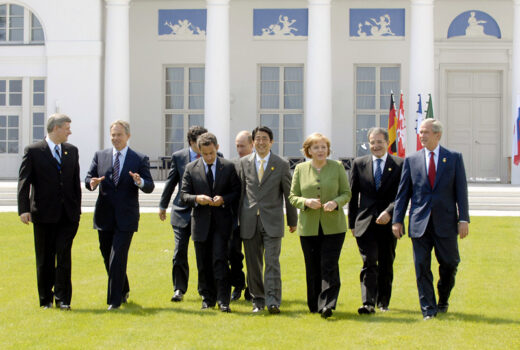Read below the most recent content from STWR that includes our editorials, articles, book publications and events. Additional guest content can be viewed by clicking ‘latest posts’ on the main menu above. To keep informed of our activities, please sign up to our newsletter here.
Open letter to the G8 Ministers
News / 7th June 2007To coincide with this week’s G8 Summit, STWR have published a full page open letter in the The Guardian (6th June) and The Independent (7th June) newspapers directly addressing the Ministers.
G8 agenda: shared responsibility or self preservation?
Article / 7th June 2007Once again the G8 (Canada, France, Germany, Italy, Japan, Russia, UK and the US) have begun their annual summit. This year it takes place at Heiligendamm, a small seaside resort in North Germany, which has been transformed into a fortress, surrounded by twelve kilometres of welded metal fence…
Share The World's Resources at the first United States Social Forum (USSF)
News / 2nd June 2007STWR attended and ran a series of workshops at the first ever United States Social Forum (USSF) held in Atlanta, Georgia, from June 27-July 1 – the first in a series of regional gatherings aimed at decentralising the World Social Forum
Another false dawn for overseas aid
Article / 6th April 2007The latest overseas aid figures will be no suprise to the developing world. Broken promises will continue to make newspaper headlines until the deeper contradictions and biases of the current economic approach are addressed.
The end of economic growth
Article / 4th April 2007The pursuit of economic growth as a sole measure of national success is not, despite the dogmas of the World Bank, a foregone conclusion or an inevitable assumption. A paradigm shift in thinking is required if our obsession with outmoded orthodox economics is ever to be overcome, writes Adam Parsons.

